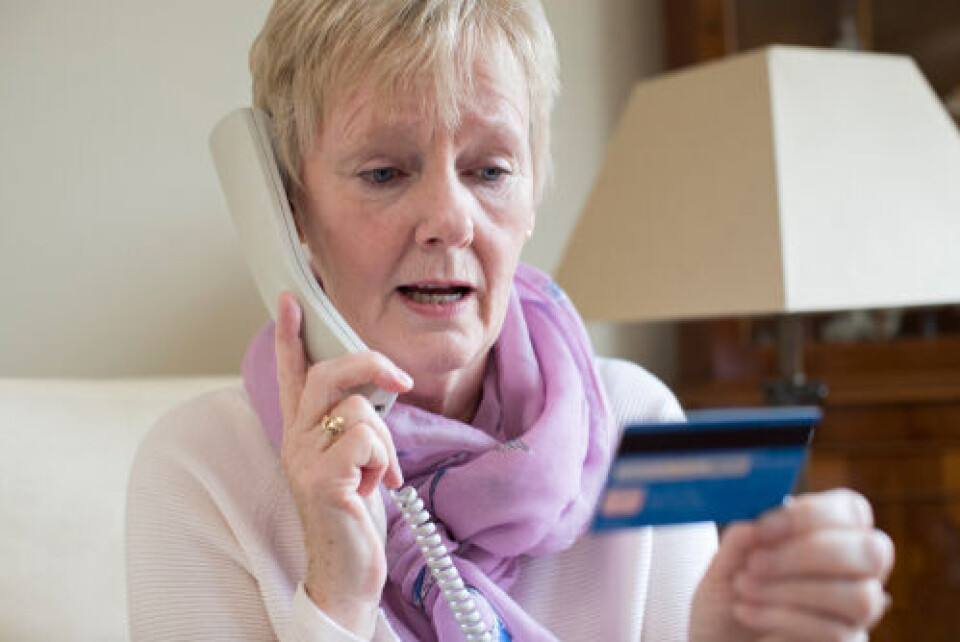-
French ski resorts report excellent Christmas despite less snow than last year
Bookings are up and non-snow related activities are also on the rise
-
American celebrity jeweller robbed of ‘more than €1m’ at French Riviera Airbnb
Jewellery and cash stolen from rental property where Chris Aire was staying
-
New 2026 civic tests in France: 50 example questions in French
Candidates must score 80% on tests to pass
New scam doing rounds in France over ‘boxes’ for electricity meters
Fraudsters are looking to capitalise on people’s fears over rising energy bills. Here is how to avoid falling victim

People in France are being warned to stay alert to a new scam that is becoming more common since electricity bills increased this month.
To date this has often come in the form of a phone call from a number beginning with 05 with the caller trying to sell people a special device to fit to their electricity meter that they claim will enable them to save money on energy bills.
Read more: Electricity prices are rising in France: How much more will you pay?
Read more: How to check if an incoming call is from a cold caller in France
If you receive such a call, hang up, it is a scam. The caller may sound legitimate and some claim to come from genuine companies and to be working with the government. One such company, Eco Assistelec, has been reported as saying that it can connect a box to your electricity meter and enable you to reduce your bills by 20%.
The caller may have all of your details from your EDF or Engie account, including your name and address and how you pay your bills. They may even say that the box and connection is free – although some are reported to say that the service costs just €11.90 per month thereafter.
However, a search online will reveal Eco Assistelec (and similar companies) to be a scam.
One victim from Marseille, Camille, told France 3 that the fraudsters had caught her off guard. She said: “I was right in the middle of moving when they called me. The day before, I had closed my electricity account so I could open another one for my new address. I thought it was linked to that.”
Camille said that although the caller mangled her name when they first said it, they were otherwise convincing. She said: “The fact that they knew all my information, it removed some of my doubt, even though I felt deep down that it was a bit odd.”
EDF told France 3 that they are not running any kind of promotion on “boxes of this kind”. They said: “We are not doing any kind of calls for this. If clients feel they have been a victim, they should denounce the calls on the government website.”
Some customers may receive calls from their energy supplier on how to reduce their electricity consumption to save money, EDF said, but these will not try to sell you anything.
How can you avoid being scammed?
There are several ‘signs’ that may alert you to the fraud.
-
The sense that the person on the line is reciting from a script
-
They may get your name or some of your details wrong at first
-
They may struggle to answer any questions and simply recite the same script again
-
They may become aggressive if you question them or appear reluctant
-
They might promise to send a contract by email, as a way to appear more legitimate
In general, you should not give out your bank details over the phone unless you are absolutely certain it is safe.
Victim Camille said that when she asked questions and appeared reluctant to hand over bank details like her IBAN number, the caller became aggressive.
She said: “I was more and more suspicious, and I didn’t want to give them my bank details but then they became aggressive and said that the IBAN isn’t confidential data; that they couldn’t take my money without my permission, and insisted that I hand it over. I felt obliged…the atmosphere was bizarre.”
Camille then received a ‘contract’ by email that she ‘needed to sign’. The email may appear to come from another provider. In this case, the email signature said ‘Big Yipsylon’, another company that has also been reported as a scam operation.
Camille said: “You click on a big button to sign, but you can’t see the contract directly. You supposedly receive it after you sign.”
The ‘contract’ is actually a scam sign-up for a debit of €11.90 per month, and most signatories never actually receive the document. Signing up may give the scammer access to more money.
What if I accidentally fall victim?
-
Report the fraud to your local police or gendarmerie
-
Let your bank know and ask it to stop any payments
-
Report the scam to the new platform, Thesee (Traitement harmonisé des enquêtes et signalements pour les e-escroqueries). This is a new service put together by the Interior Ministry to help coordinate the tracking of online scams.
You can also report the scam to the government’s anti-illicit Internet content website, Pharos.
Related articles
Scam alert in France: Watch out for online energy fraudsters
Beware new telephone scam for bank details doing rounds in France
Electricity prices are rising in France: How much more will you pay?
























